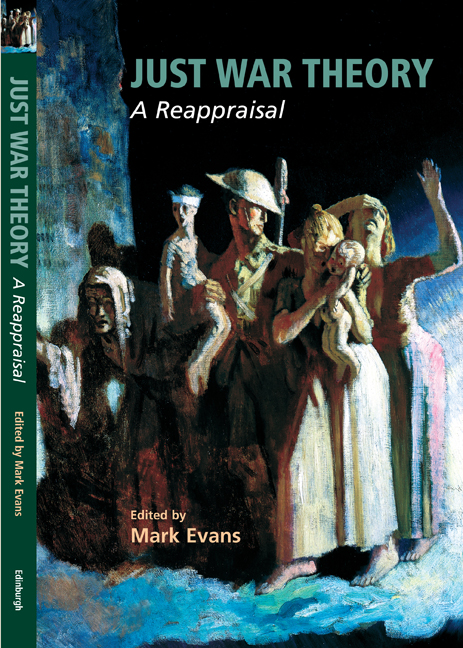Book contents
- Frontmatter
- Contents
- Notes on the Contributors
- Preface and Acknowledgements
- Introduction Moral Theory and the Idea of a Just War
- JUST CAUSE
- 1 The Justice of Preemption and Preventive War Doctrines
- 2 Punitive Intervention: Enforcing Justice or Generating Conflict?
- 3 In Humanity’s Name: Democracy and the Right to Wage War
- JUSTICE IN THE CONDUCT OF WAR
- 4 The Concept of Proportionality: Old Questions and New Ambiguities
- 5 Just War? Just Children?
- 6 Is There a Supreme Emergency Exemption?
- JUSTICE AND THE END OF WAR
- 7 Security Beyond the State: Cosmopolitanism, Peace and the Role of Just War Theory
- 8 Forgiveness and Reconciliation in Jus Post Bellum
- CONCLUSION
- In Defence of Just War Theory
- Bibliography
- Index
5 - Just War? Just Children?
Published online by Cambridge University Press: 03 October 2020
- Frontmatter
- Contents
- Notes on the Contributors
- Preface and Acknowledgements
- Introduction Moral Theory and the Idea of a Just War
- JUST CAUSE
- 1 The Justice of Preemption and Preventive War Doctrines
- 2 Punitive Intervention: Enforcing Justice or Generating Conflict?
- 3 In Humanity’s Name: Democracy and the Right to Wage War
- JUSTICE IN THE CONDUCT OF WAR
- 4 The Concept of Proportionality: Old Questions and New Ambiguities
- 5 Just War? Just Children?
- 6 Is There a Supreme Emergency Exemption?
- JUSTICE AND THE END OF WAR
- 7 Security Beyond the State: Cosmopolitanism, Peace and the Role of Just War Theory
- 8 Forgiveness and Reconciliation in Jus Post Bellum
- CONCLUSION
- In Defence of Just War Theory
- Bibliography
- Index
Summary
Despite the enormous shifts that have taken place in the conduct of warfare over the past centuries, theories of just war have had a remarkably continuous currency: largely the same nomenclature and considerations run through the tradition's history. Indeed, few concepts have had such enduring resonance as the very idea of a just war, shaping even the otherwise guileless rhetoric of contemporary US presidents, for example. This volume, a critical reappraisal of just war tenets, itself illustrates and explores that appeal in the context of a new and particularly challenging security environment. However, in terms of just war theorising's application to children, this is but a first meeting: just war theory appraised – and it is not an easy introduction. Childhood is an ambiguous life-stage, war and security are contested concepts; contested, too, is the relationship between humanitarian and international human rights law and the status of child victims and child perpetrators. Neither is this an introduction that can or should be made comfortably. For many children who have been present or engaged in war, it is made posthumously. For all children it is necessarily made on their behalf, an issue of participation which will be addressed later.
Children's unqualified conceptual absence from just war theorising itself suggests an assumption of children's status as comparable to (adult) civilians or innocents. This implicit judgement will be challenged theoretically and empirically. It will be shown that just war theory has a more complex arena of application than has previously been recognised, and it will be argued that it should recourse to children additionally and separately. Children are vulnerable in different ways from adults, and war is also fought directly by children. Children's participation in war fundamentally challenges the traditional conception of jus in bello, its many tensions exacerbated by the ambiguity surrounding the very application of the concept of ‘childhood’. More significantly, it will be suggested how, in its present form, the doctrine of just war theory might ultimately bind children and indeed all persons into the very frameworks and evils from which it attempts to free them.
First, the chapter will turn to the conceptions of the child that may be informing or be able to inform just war theory.
- Type
- Chapter
- Information
- Just War TheoryA Reappraisal, pp. 114 - 133Publisher: Edinburgh University PressPrint publication year: 2020



